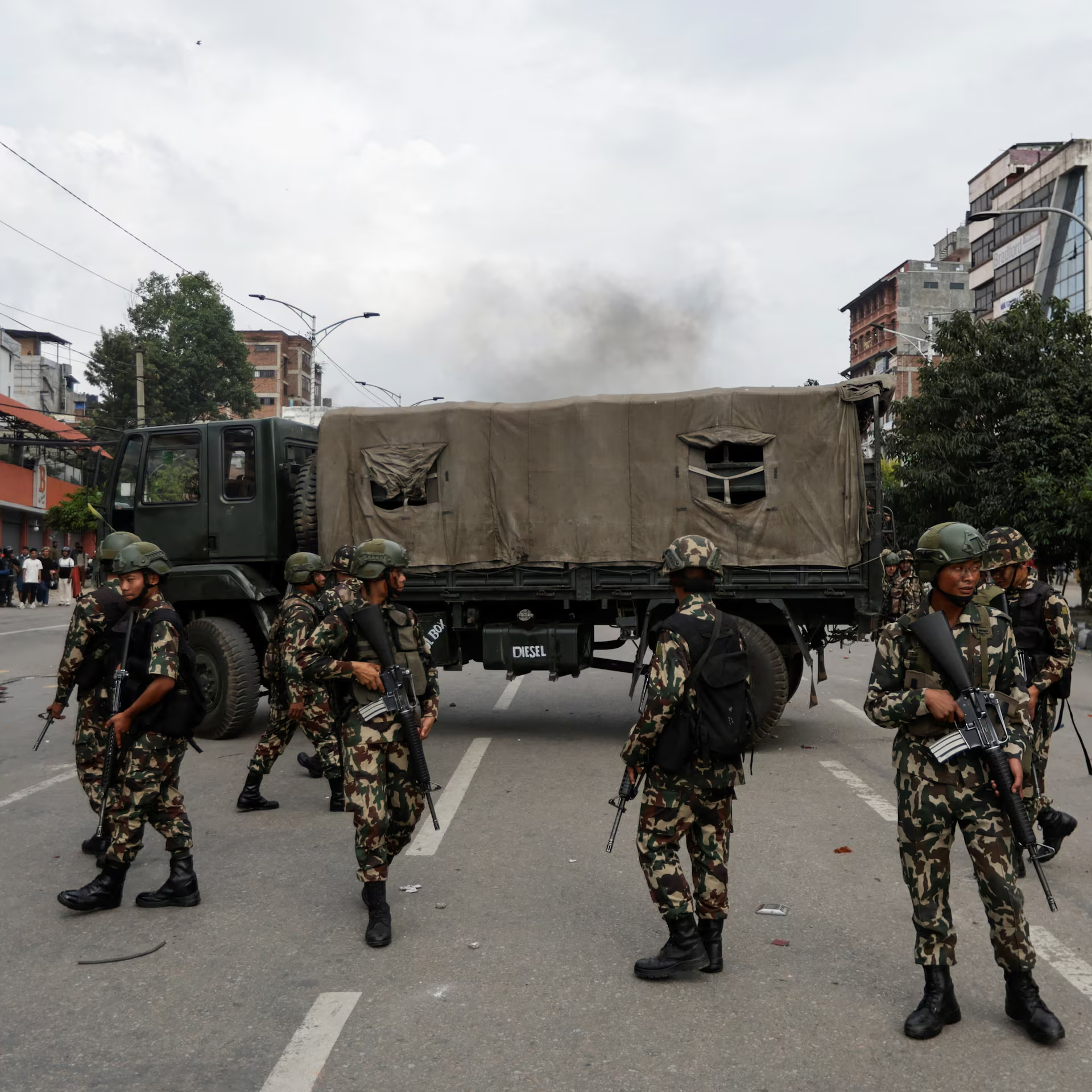Nepal in Turmoil: Army Steps In Amid Widening Youth-Led Uprising Against Corruption and Failed Governance
Nepal, India’s Himalayan neighbour, is in the throes of one of its most serious political and social upheavals in recent years.
What began as a wave of youth-led protests has spiraled into a full-blown movement against what citizens are calling the “corrupt regime” that has consistently failed to address their needs and aspirations.
On Tuesday night, the Nepali Army formally took control of national security after days of relentless demonstrations that left at least 19 people dead in police firing and forced Prime Minister KP Sharma Oli, 73, to resign.
Oli stepped down hours after protesters stormed his office, accusing him of corruption, repression, and poor governance. In his resignation letter to President Ramchandra Paudel,
Oli cited “extraordinary circumstances” as the reason for relinquishing power.
Arrests and Crackdown
On Wednesday, the Army announced the arrest of 26 individuals linked to looting and vandalism during the chaos.
Five were detained for allegedly robbing a bank in New Baneshwor, while 21 others were apprehended in the Bouddha area for violent activities.
In its statement, the Army accused “criminal groups” of hijacking the initially peaceful protests by resorting to looting, arson, and attacks on public property.
A Movement Born Out of Frustration
The protests gained momentum after the government controversially banned 26 social media platforms, including Facebook and X, in a desperate attempt to stifle dissent.
Instead, the move only fueled anger, with citizens—particularly the youth—pouring into the streets to demand accountability.
What began as resistance to censorship quickly grew into a broader uprising against entrenched corruption, governance failures, and the state’s inability to respond to people’s everyday struggles.
The movement has since been driven by a tech-savvy, socially mobilized Generation Z, who are calling for a new era of transparency, inclusivity, and people-first governance.
Army’s Plea to Citizens
With curfews imposed and police overstretched, the Nepali Army has urged citizens to remain vigilant and actively assist in restoring peace.
It appealed to communities to monitor their neighbourhoods, report suspicious activity, and share credible information through SMS, WhatsApp, or Viber at its designated number (9863029029).
The Army also cautioned against the spread of misinformation and fake news, urging citizens to rely only on verified sources as social media continues to be flooded with unconfirmed claims.
“The Nepal Army is always committed to protecting the interests and security of the Nepali people. In view of recent events, we reaffirm our commitment to safeguard lives and property.
We urge all youth and citizens to remain calm and uphold social harmony and national unity so the situation does not deteriorate further,” the statement read.
Institutions Under Attack
The intensity of the protests became evident on Tuesday when enraged crowds stormed and set fire to several of the country’s most important institutions, including Parliament, the Singha Durbar complex (the seat of government), the Supreme Court, political party offices, and even the residences of senior leaders.
Despite heavy curfews and a strong police presence, protesters—driven by anger and frustration—continued to defy restrictions, marking this as one of the most forceful expressions of public discontent in Nepal’s recent history.
A Nation at the Crossroads
The unfolding events underscore a deeper crisis: a generation of Nepalis disillusioned by corruption and lack of governance, taking matters into their own hands.
The uprising has shaken the foundations of Nepal’s political order, raising questions about the future direction of the young democracy.
The days ahead remain uncertain. While the Army has assumed charge of national security and pledged to restore calm, the legitimacy of Nepal’s political leadership lies in tatters, with a restless population demanding nothing short of sweeping reforms.
#NepalProtests #GenZMovement #KPSharmaOli #NepalUprising #YouthForChange #CorruptRegime #NepalCrisis #HimalayanUnrest #SouthAsiaPolitics #DemocracyInDanger




